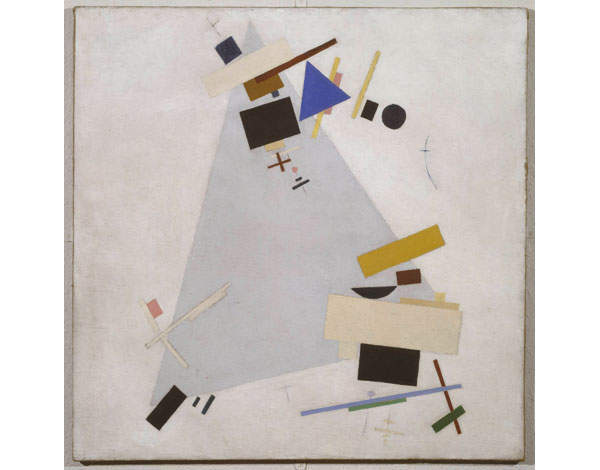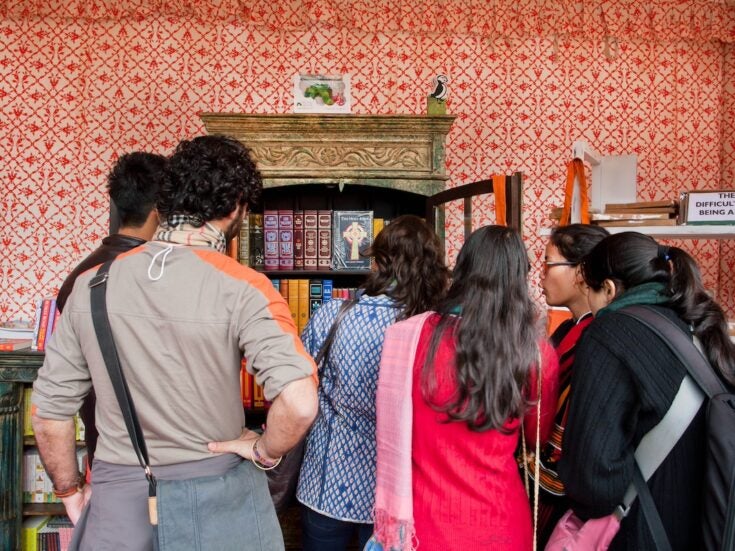

BEAR HUGS
This year has been designated the UK-Russia Year of Culture, and its first display of delicate artistry came at the Ritz in early January, when one of Russia’s deputy prime ministers, Olga Golodets, after admitting to having had ‘pretty heated discussions’ with President Putin from time to time, added diplomatically that ‘Vladimir Vladimirovich is a person who always listens to all the opinions of people around him.’
Golodets was over ahead of London’s first formal occasion in the programme, the dinner at the Cavalry and Guards Club in Piccadilly in late January. Representatives of the main cultural strands, along with businessmen and politicians, dined in the presence of HRH Prince Michael of Kent, the Russian ambassador Alexander Yakovenko and the former head of the British Armed Forces, General Sir David Richards.
Read more on art and collecting from Spear’s
The year, which is the first time such an initiative has been attempted between the two nations, was agreed by British foreign secretary William Hague and his Russian counterpart, Sergey Lavrov, in March 2013. With support from the highest levels in both countries, events that normally take years in the planning have been fast-tracked to provide a selection of plays, opera, film, ballet and art in Russia and Britain.

Pictured above: Malevich’s suprematist art
From Pavlova and Nijinsky to Chekhov and Nabokov to Gagarin and Tereshkova, leaders in Russian arts and sciences are being celebrated in England with, among many other events, a ballet gala at the Coliseum, plays in London and Edinburgh and an exhibition about Russian cosmonauts at the Science Museum.
By way of return, one of the highlights in Moscow, organised by the Barbican, is the exhibition Designing 007: Fifty Years of Bond Style, which is due to open at the Moscow Multimedia Art Museum on 6 June. The irony of celebrating a spy who specialised in eliminating Soviet agents and was in fact banned in the USSR has not gone unnoticed.
Read more on Russia from Spear’s
Other events in Moscow include the art of the YBAs in Challenging Boundaries: Breakthroughs in British Art 1988-1998 at the Ekaterina Foundation; tours by the English National Opera and the London Philharmonic Orchestra; Hitchcock film screenings; and an exhibition of Wedgwood pottery at the All Russian Museum of Applied and Folk Arts. The Hermitage Foundation will be organising an event at Spencer House in May and a gala ball at the Winter Palace in June.
An orthodox approach
For those well versed in Russian and English history this cooperation between the countries should come as no surprise. Although there have been tensions in recent years over extradition issues, spying accusations and business disputes, trade and dynastic marriages have been occurring between the two nations for nearly a thousand years.
When William Duke of Normandy killed King Harold in 1066, Harold’s daughter, Princess Gita, fled first to Denmark and then to Kiev. She took St Augustine’s icon with her as a demonstration of her faith, and contemporary chronicles comment on the ‘tenderness and piety of the girl’.
Gita’s faith resonated well in Kievan Rus, which had only converted to Christianity in 988, and her cousin Sven, King of Denmark, arranged for her to be married to the Russian king, Vladimir Monomakh (1053-1125). Gita bore him ten children, from whom most of the leading Russian pre-revolutionary families were descended.
Relations between the two countries have swung between alliance and rivalry ever since, but trade and diplomatic necessity have meant alliance more often than not. The Kingdom of England and tsarist Russia formally established relations in 1553 at the time of Ivan Grozny (the Terrible), who went on to court Elizabeth I as a possible second wife.
When she rejected him he wrote her a rude letter, preserved today in the Kew archives, in which he accuses her of being an old maid and queries whether she has control over her country. The Victoria and Albert Museum’s recent exhibition of elaborate Elizabethan and Stuart silver sent to Russia bore witness to this era.
Peter the Great spent three months in England between 1697 and 1698 and imported shipbuilding artisans, architects and engineers into Russia. The two countries fought on the same side in the War of the Austrian Succession (1740-48) but on opposing sides in the Seven Years War (1756-63).
In more recent times, apart from the Crimean War (1853-56), Russia and Britain have fought on the same side against Napoleon, Kaiser Wilhelm II and Hitler.
Past tense
Of course, the postwar years have seen tension rather than friendliness predominate. During the Cold War, Soviet spies such as Anthony Blunt and Kim Philby operated in England, and dissidents were murdered on English soil.
Since the collapse of the Soviet Union in 1989, relations between the two countries have slowly been improving, despite setbacks such as Britain refusing extradition of Boris Berezovsky in 2003 and Russia refusing the extradition in 2006 of Andrei Lugovoi (wanted for questioning in connection with the death of Alexander Litvinenko, another dissident murdered on English soil). And the recent remark by a Putin spokesman that Britain was ‘a small island that no one listens to’ was met by David Cameron saying there was no country ‘with a prouder history, a bigger heart or greater resilience’.
There has been speculation as to why this cooperation between the two nations is happening now and neither party has admitted to a political motivation, although invariably there will be (at least) one. On a superficial level, a year of inoffensive mutual cultural triumphalism can somewhat smooth current hot heads on both sides.
More deeply, there is geopolitics. The Foundations of Geopolitics, a Russian textbook by Alexander Dugin published in 1997, has been influential among the Russian elite. The book advocates that Russia should isolate the United Kingdom from the politics of continental Europe. In both countries there is also a feeling that they have a shared Christian and cultural background and that, with the US increasingly withdrawing as world policeman, strategic trade and political alliances at a national level will become increasingly important.
Meanwhile, some of the British armed forces’ top brass say that since President Obama has made clear his disdain for Britain and the ‘Special Relationship’, if Britain appears to pivot towards Russia it may make Obama reconsider. They believe Britain cannot necessarily rely on the US for support in future conflicts and that it is a good time to develop relationships with other military powers such as Russia. One may or may not take this with a pinch of salt.
And there are, of course, the 500,000 Russians who now live in Britain. Not all will be interested in the Year of Culture, any more than all are like the stars of Meet the Russians, but it may be like a little taste of home.
(Pictured top: Chekhov’s Uncle Vanya)







